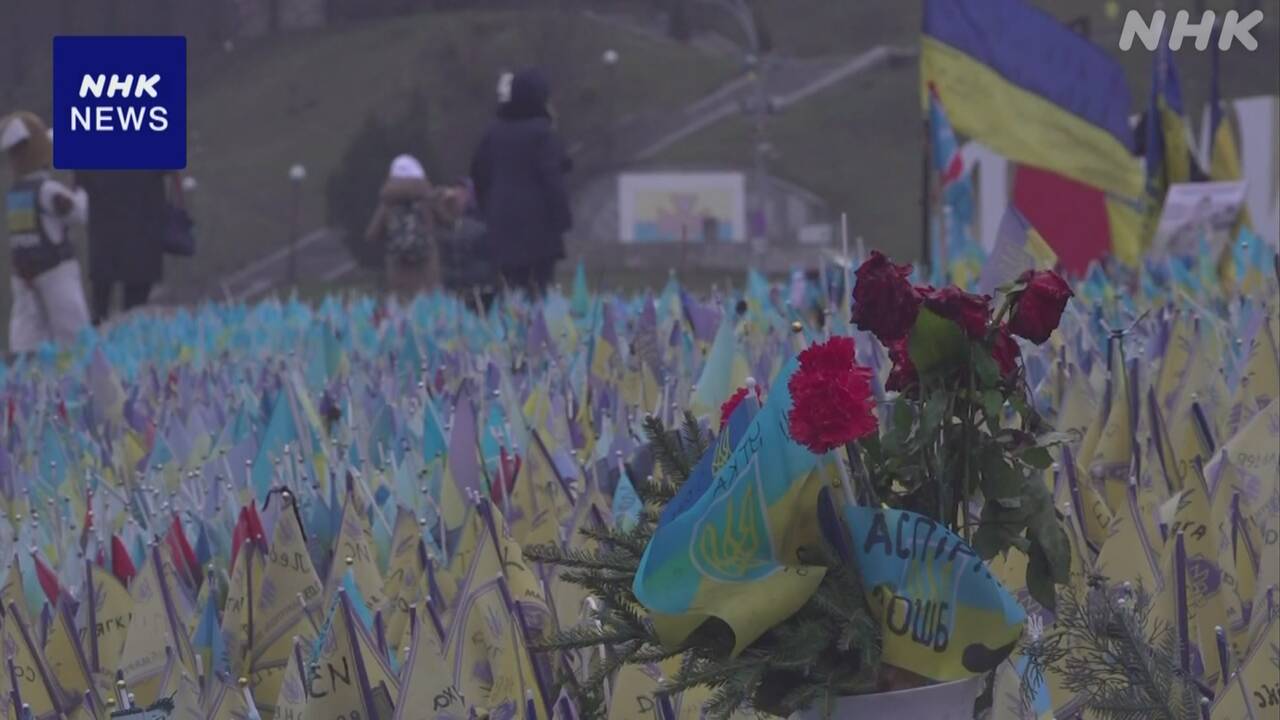Almost two years have passed since Russia began its invasion of Ukraine, and on the 19th, the Japan-Ukraine Economic Reconstruction Promotion Conference will be held in Tokyo on the 19th.
In addition to government officials such as Prime Minister Kishida and Ukrainian Prime Minister Shmikhali, approximately 130 companies from both countries are scheduled to participate.The public and private sectors will work together to support reconstruction in seven areas, including agriculture and infrastructure development. We are planning to exchange documents.
At the summit session, Prime Minister Kishida will give a keynote speech, and President Zelenskiy of Ukraine will deliver a video message.
Japan plans to launch support measures in seven areas, including demining and debris disposal, improving agricultural productivity, and improving power and transportation infrastructure. Approximately 50 projects have been launched between companies and the public and private sectors of both countries. We have decided to exchange a document of cooperation.
In addition, in order to encourage Japanese companies to expand into Ukraine, the government is considering partially easing travel restrictions to Ukraine for those involved in companies and organizations, and plans to announce this at a meeting on the 19th. .
What is the status of recovery in Ukraine?
In Ukraine, housing and infrastructure have suffered significant damage due to Russia's military invasion.
As recovery and reconstruction progresses, challenges unique to wartime times are also coming to light.
Destroyed buildings (Vorozyanka, Kiv region)
According to estimates by the World Bank and other sources, direct damage to housing and infrastructure suffered by Ukraine from the beginning of the invasion to the end of December last year amounted to 152 billion dollars, or approximately 22 trillion yen in Japanese yen.
In terms of housing, where the damage was the most severe, nearly 2 million households were affected, with apartment complexes and single-family homes destroyed.In terms of infrastructure, 8,400 kilometers of roads and more than 290 bridges were damaged. It has been damaged and destroyed.
In Kiiv Oblast, where the area around the capital Kiiv was temporarily occupied by Russian troops immediately after the invasion two years ago, authorities say more than 29,000 buildings have been destroyed in the region alone. Approximately 40% of these have not yet been repaired or rebuilt.
In Borozhanka, about 50 kilometers northwest of the capital, Kiev, you can see buildings here and there that are still untouched, having been destroyed by the Russian army that invaded two years ago.
One citizen living in temporary housing built on the site of his home said he had no money and was unable to demolish his home, adding: ``The war is still going on and the Russian army may come again.'' I want to rebuild after this is over," he said.
Planned apartment construction site where construction is not progressing (Irpin, Kiv region)
Additionally, in Irpin, near the capital Kiv, there are plans to rebuild damaged and demolished apartment complexes, but some areas remain as bare land.
According to authorities in Kiv province and other sources, in many cases they are unable to secure workers to rebuild housing due to a labor shortage due to conscription.
A man who was working on rebuilding houses in Irpin said, ``Many people went to the front lines or were drafted, so 60% of the manpower is gone, and only 40% remain.We can't make enough progress with the work.'' I was there.
In Irpin, a bridge destroyed last November to stop Russian troops from advancing on the capital was restored, and in Bucha, houses appeared to be being rebuilt on the street where many residents were killed. In some places, recovery and reconstruction are progressing little by little.
However, although some residents have been able to rebuild their homes, some express strong concerns that as long as the invasion continues, they may be robbed of their homes again. I'm happy, but the war is still going on and there's still fear."

